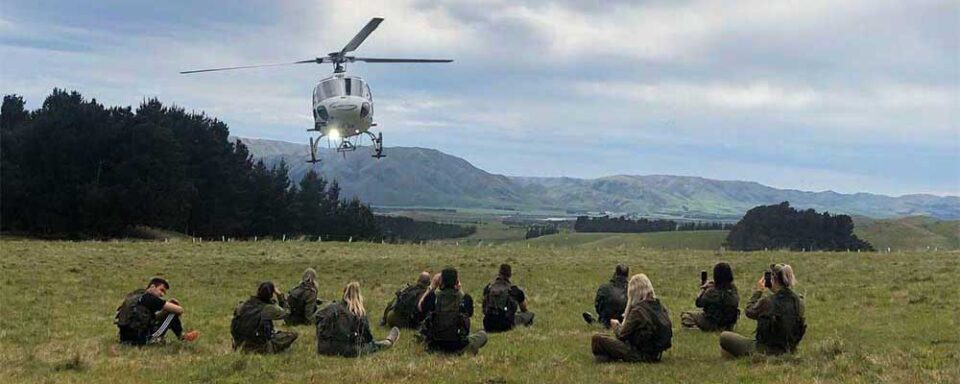Photo supplied: Halo Training Website
By Tony Groves, founder and lead trainer, HALO Training
Over the past five years of working within the construction industry and the broader industry through networks such as CCNZ, it’s become clear that leadership training needs to about ‘people’, and be practical and hands on. And for training to be effective, it must be engaging.
HALO Training takes the lessons learned from the battlefields of Iraq, Afghanistan, and other global conflicts, to deliver practical and experience-based leadership development programmes.
Our tools are completely transferable because just like business, the military operate in a constant state of volatility, uncertainty, complexity, and ambiguity.
A point of difference with our workshops is that we provide tangible take-aways. We don’t overwhelm people with information overload and, to ensure that people get the most out of our programmes, we keep it simple and focus on just one subject each session.
This means that back in the workplace, your people will know when and how to apply the right tool, to the right situation, with calm confidence. The art of leadership.
Our learning model of ongoing and continuous growth, combines classroom-based theory (learn the tools), practical application (practice the tools), structured reflection (unpacking lessons learned), and post-activity learning (on-going learning back in the workplace). An engaging learning model that works for all learning styles, including those who prefer the more “hands-on” approach.
After leading teams on operations in complex, ambiguous, and fast-moving environments such as Afghanistan, we teach first-hand the effects that pressure and emotions have on clarity of thought and decision-making. The importance of being aware of our own emotions, and how the things we say, and the things we do, impacts others.
Taking this into account, our tools have been designed to be simple and easy to recall in times of pressure. Usually just three or four steps that help leaders to focus their thoughts, attention, and action in the right place, at the right time and can be immediately applied to the workplace.
We also provide the opportunity for people to actually practice applying their new tools, in a safe-to-fail environment, that simulates challenging and realistic conditions.
We have developed our topics based on the human side of leadership, and those situations that we all experience and all work through. From decision-making under pressure, to navigating adversity, and difficult conversations.
Some of our topics include the following.
Mental Toughness
Challenge comes hand-in-hand with leading others. So why is it that some people thrive in difficult circumstances, while others don’t?
In times of crisis, bold leadership and decisive action is crucial. Our Mental Toughness workshop takes a proactive approach to leading in times of adversity. Our tools were forged on the battlefield under real pressure, and real consequences.
Rather than leaving our people to blindly fumble their way through the fog, this workshop provides people with a practical way forward towards a more favourable outcome, without getting bogged down in the negativity.
Decision-making Under Pressure
High stakes decision-making is at the core of day-to-day leadership. Thinking clearly in times of pressure is not easy. Our thoughts can scatter and we can become bogged down in the situation, leading to clouded judgement, poor decisions and less than favourable outcomes. Equipping our people with an easy to recall process that provides focus when it matters the most, leads to better decisions and better outcomes.
Difficult and strategic conversations
Difficult conversations are a healthy and essential part of everyday business. They can also be uncomfortable, challenging, and if not done right, can lead to additional unnecessary problems.
Developing our ability to confidently, ethically and constructively discuss workplace issues, helps to improve problem solving, innovation, and also fosters a positive workplace culture.
Communication is the lifeline of all organisations, at every level. Uninformed communication styles can lead to workplace confusion, error, but also unintentional micromanagement. Informed communication techniques foster innovation and ensures all moving parts of an organisation can work independently, towards a shared goal under evolving conditions. It will build trust from the ground up and reduce workplace error.
Team-building programme
For those who want to build more cohesive teams within their organisation, we have an exciting and challenging one and half day team-building programme.
The primary focus of this programme is to build trust, psychological safety, humility, and finally equip the team with the tools to help them prepare for, and navigate adversity in the moment. With the team, for the team, as a team.
Our Military style and one of a kind team building programmes are a catalyst for developing team cohesion when its needed most. Attendees will come together as they realise that they can do more than they thought, both individually, and as a team.
For more information: halotraining.co.nz.

